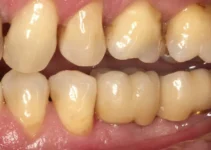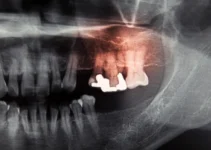Managing sleep apnea is crucial for a restful night. This condition, where breathing repeatedly stops and starts during sleep, can severely impact your health and daily functioning. Several strategies can help manage symptoms effectively. Positional therapy, avoiding alcohol close to bedtime, and using a CPAP machine are among the top recommendations for those struggling with this condition. Adequate management not only improves sleep quality but also reduces the risk of related health issues.
Understanding Sleep Apnea
Sleep apnea is a potentially serious sleep disorder in which breathing repeatedly stops and starts. It can affect the quality of sleep, leading to fatigue and other health issues. Understanding sleep apnea is crucial for identifying and treating the condition effectively. In this article, we will explore what sleep apnea is, the different types, and its symptoms.
Sleep apnea is often underdiagnosed because its symptoms can be subtle or mistaken for other issues. However, recognizing the signs and seeking professional advice can improve one’s quality of life. Here, we delve into the specifics of sleep apnea to provide a comprehensive understanding.
What is Sleep Apnea?
Sleep apnea is characterized by pauses in breathing or periods of shallow breathing during sleep. These interruptions can last from a few seconds to minutes, and they may occur up to 30 times or more in an hour. As a result, the brain and the rest of the body may not get enough oxygen.
There are two main types of sleep apnea: obstructive sleep apnea and central sleep apnea. Both types lead to a fragmented sleep pattern, which results in daytime sleepiness and fatigue. The condition can be diagnosed through a sleep study, which monitors the body’s behavior during sleep.
Types of Sleep Apnea
Obstructive Sleep Apnea (OSA) is the more common form of sleep apnea. It occurs when the muscles in the back of the throat fail to keep the airway open. This blockage can be caused by several factors including obesity, large tonsils, or a large neck circumference.
Central Sleep Apnea (CSA) is less common and involves the central nervous system. This type of sleep apnea occurs when the brain fails to signal the muscles to breathe. CSA can be related to medical conditions such as heart failure or stroke and tends to be linked to serious illnesses.
There is also a combination of both forms, known as Complex Sleep Apnea Syndrome, where patients suffer from both OSA and CSA. This mixed type can be more challenging to diagnose and treat effectively.
Symptoms of Sleep Apnea
The symptoms of sleep apnea can vary but often include the following:
- Loud snoring
- Episodes of breathing cessation during sleep, often witnessed by another person
- Gasping for air during sleep
- Morning headache
- Difficulty staying asleep (insomnia)
- Excessive daytime sleepiness (hypersomnia)
- Difficulty paying attention while awake
- Irritability
If you or a loved one experience any of these symptoms, it is crucial to seek medical advice. Early diagnosis and treatment can significantly reduce health risks associated with sleep apnea, such as cardiovascular issues, high blood pressure, and type 2 diabetes.
To learn more about sleep disorders and their impact on health, explore our other articles that delve deeper into various strategies for achieving better sleep and overall well-being.
Impact of Sleep Apnea on Sleep Quality
Sleep apnea is a serious condition that significantly impacts sleep quality. Characterized by repeated interruptions in breathing during sleep, it can lead to a cascade of health issues. These interruptions, known as apneas, can last from a few seconds to minutes and may occur 30 times or more an hour. Consequently, individuals with sleep apnea often experience fragmented sleep, which prevents them from reaching the deeper stages of sleep necessary for restorative rest.
There are two main types of sleep apnea: obstructive sleep apnea (OSA) and central sleep apnea (CSA). OSA is more common and occurs when the throat muscles intermittently relax and block the airway during sleep. CSA, on the other hand, happens when the brain fails to send proper signals to the muscles that control breathing. Both types lead to a reduction in oxygen levels and can cause numerous awakenings throughout the night.
Understanding the impact of sleep apnea on sleep quality can help in recognizing its symptoms early and seeking appropriate treatment. This, in turn, can improve overall health and quality of life significantly. Let’s delve deeper into how sleep apnea affects your sleep and the broader consequences of poor sleep quality.
How Sleep Apnea Affects Your Sleep
Sleep apnea primarily affects the quality of your sleep by causing repeated awakenings and preventing you from reaching the deeper stages of sleep. When breathing stops, even temporarily, your body shifts from deep sleep to lighter sleep or wakes up completely so it can resume breathing. This process can happen dozens or even hundreds of times a night. These frequent interruptions mean that individuals with sleep apnea spend less time in the essential stages of deep sleep and Rapid Eye Movement (REM) sleep, which are crucial for both physical and mental recovery. The lack of deep sleep can lead to a feeling of unrefreshing sleep, no matter how long you’ve been in bed. Common symptoms of disrupted sleep include excessive daytime sleepiness, morning headaches, and irritability. It can also lead to challenges with concentration, memory, and mood regulation. If these symptoms are regularly experienced, it may be a sign of untreated sleep apnea.
Consequences of Poor Sleep
Poor sleep quality due to sleep apnea can have wide-ranging consequences. Short-term effects are immediately noticeable and can significantly impair daily functioning. These include:
- Reduced alertness and concentration
- Increased risk of accidents, especially motor vehicle accidents
- Memory impairment
- Mood swings and irritability
Beyond these immediate effects, chronic sleep disruption can lead to more severe health issues. Sleep is essential for the body’s healing processes, immune function, and metabolic regulation. Regularly poor sleep can compromise all these systems, leading to further health complications.
Additionally, untreated sleep apnea has been linked to decreased quality of life and can exacerbate pre-existing conditions such as depression and anxiety, making it crucial to address the underlying sleep issues effectively.
Long-term Health Risks
Over time, the effects of sleep apnea extend beyond mere sleep disturbances. The condition has been associated with an increased risk of several serious health issues, which underscores the importance of early diagnosis and treatment.
The long-term health risks of untreated sleep apnea include:
- Cardiovascular problems: High blood pressure, heart disease, stroke, and arrhythmias are common among those with untreated sleep apnea.
- Metabolic issues: Sleep apnea is linked to insulin resistance and type 2 diabetes.
- Liver problems: There is evidence suggesting a higher incidence of fatty liver disease in individuals with sleep apnea.
- Weight gain: Sleep deprivation can lead to hormonal imbalances that increase appetite and promote weight gain, further exacerbating sleep apnea.
Compounding these risks, untreated sleep apnea can also contribute to a shortened lifespan. Therefore, it is crucial to seek medical advice if sleep apnea is suspected. Effective treatments are available, including lifestyle changes, CPAP machines, and surgical options, which can drastically improve sleep quality and overall health.
Understanding the full impact of sleep apnea on sleep quality and overall health can be a wake-up call for individuals experiencing symptoms. If you found this article informative, be sure to explore our other articles on related topics to further enhance your understanding and well-being.
Tips for Sleeping Better with Sleep Apnea
Sleep apnea is a serious sleep disorder characterized by repeated interruptions in breathing during sleep. These interruptions can lead to poor sleep quality and an array of health problems. Fortunately, there are several strategies and treatments that can help individuals with sleep apnea to sleep better and improve their overall health.
In this article, we will explore key tips for managing sleep apnea and getting a better night’s rest. These tips include using a CPAP machine and making certain lifestyle changes. By following these recommendations, you can significantly improve your sleep quality and reduce the symptoms associated with sleep apnea.
Using a CPAP Machine
The Continuous Positive Airway Pressure (CPAP) machine is one of the most effective treatments for obstructive sleep apnea. This device delivers a constant flow of air through a mask, keeping the airway open while you sleep. Studies have shown that regular use of a CPAP machine can lead to significant improvements in sleep quality and reduce the risk of heart disease, stroke, and other related conditions.
To get the most out of your CPAP machine, it is essential to ensure that the mask fits properly and is comfortable. A poor fit can cause air leaks, discomfort, and reduce the effectiveness of the treatment. Here are some tips for optimizing your CPAP therapy:
- Work with your healthcare provider to find the right mask for your face shape and size.
- Adjust the straps to ensure a snug but comfortable fit.
- Use a humidifier if you experience dryness or irritation in your nose or throat.
Regular maintenance of the CPAP machine is also crucial. Clean the mask, tubing, and humidifier chamber regularly to prevent the buildup of bacteria and ensure the device operates efficiently.
Lifestyle Changes
In addition to using a CPAP machine, certain lifestyle changes can also help manage sleep apnea and improve sleep quality. Losing weight, for example, is often recommended, as excess weight can contribute to the narrowing of the airway. A study published in the American Journal of Respiratory and Critical Care Medicine found that even a modest weight loss can significantly reduce the severity of sleep apnea.
Another lifestyle change that can have a positive impact is avoiding alcohol and sedatives, which can relax the muscles in the throat and increase the likelihood of airway obstruction. Additionally, sleeping on your side instead of your back can help keep the airway open.
Here are some other beneficial lifestyle changes to consider:
- Engage in regular physical activity to maintain a healthy weight and improve respiratory health.
- Quit smoking, as it can lead to inflammation and fluid retention in the airway.
- Establish a consistent sleep schedule to promote better sleep hygiene.
By implementing these lifestyle changes alongside your CPAP therapy, you can experience a significant improvement in your sleep and overall well-being.
For more information on managing sleep apnea and improving your sleep quality, check out our other articles. Each topic delves deeper into different aspects of sleep health and offers practical advice to help you achieve better rest and enhance your quality of life.
Common Questions About Managing Sleep Apnea
Understanding how to manage sleep apnea effectively can lead to greatly improved sleep quality. Here are some frequently asked questions about dealing with this condition during the night.
What are some effective ways to reduce sleep apnea symptoms at night?
Maintaining a healthy weight, avoiding alcohol before bedtime, sleeping on your side, and using a continuous positive airway pressure (CPAP) machine can significantly reduce the symptoms of sleep apnea. It’s also beneficial to keep a regular sleep schedule and ensure your sleeping environment is conducive to rest.
Can the use of mouthguards or dental devices help with sleep apnea?
Yes, certain dental devices, such as mandibular advancement devices, can help by repositioning the lower jaw and tongue during sleep, which may reduce airway obstruction. It’s important to consult with a dentist specialized in sleep-related breathing disorders to find a custom solution that works for you.

My name is Salman Kapa, a 73-year-old expert in bone regeneration and dental implantology. With decades of experience in the field, I am dedicated to advancing our understanding of oral health and hygiene. Through my research and writing, I aim to contribute to the development of innovative solutions in dental care.




